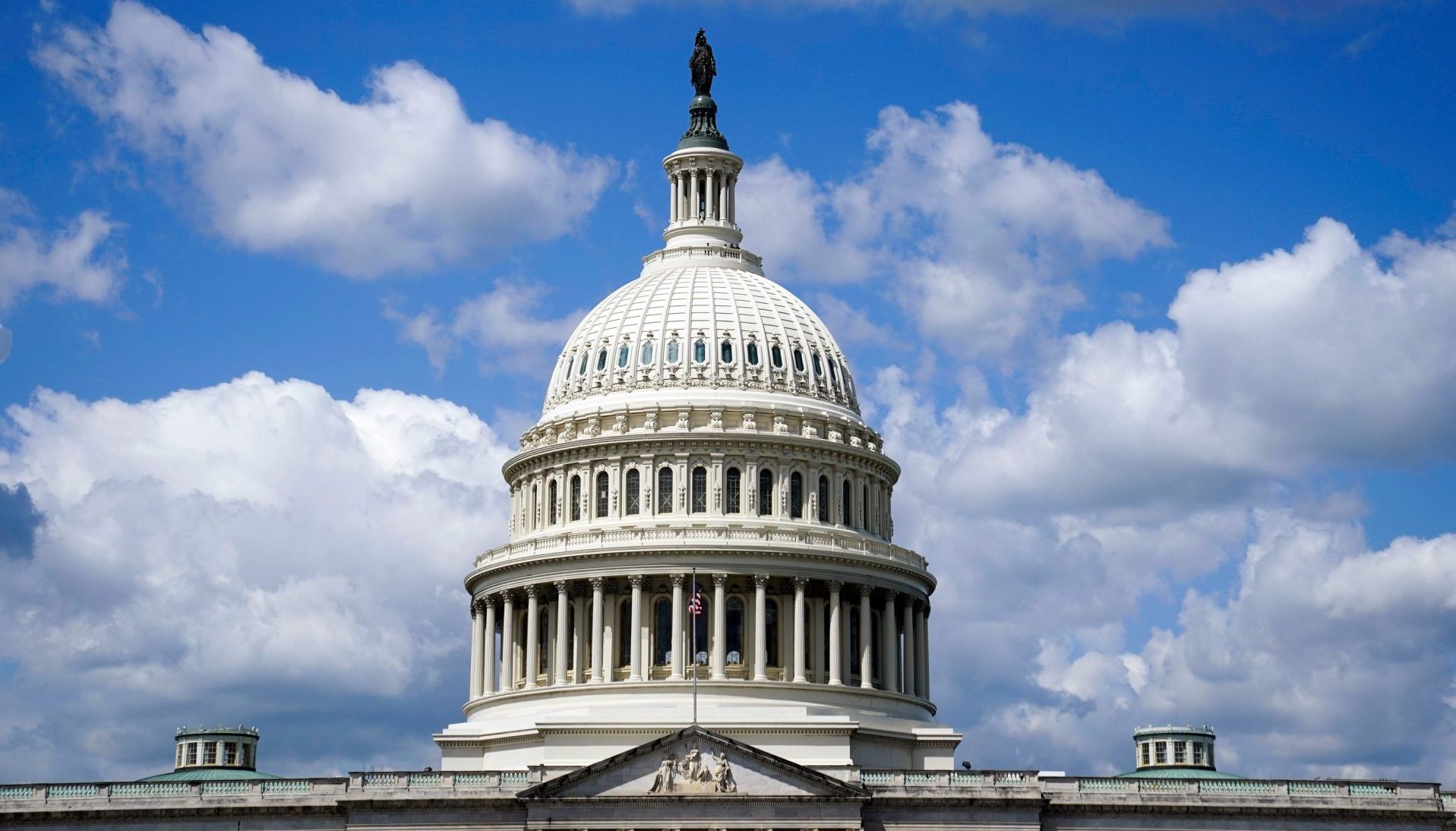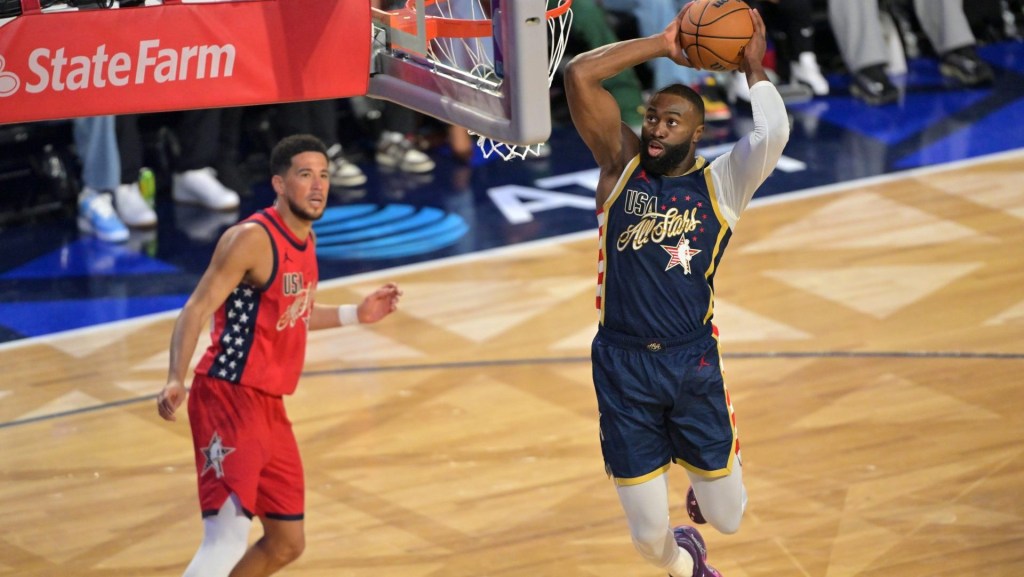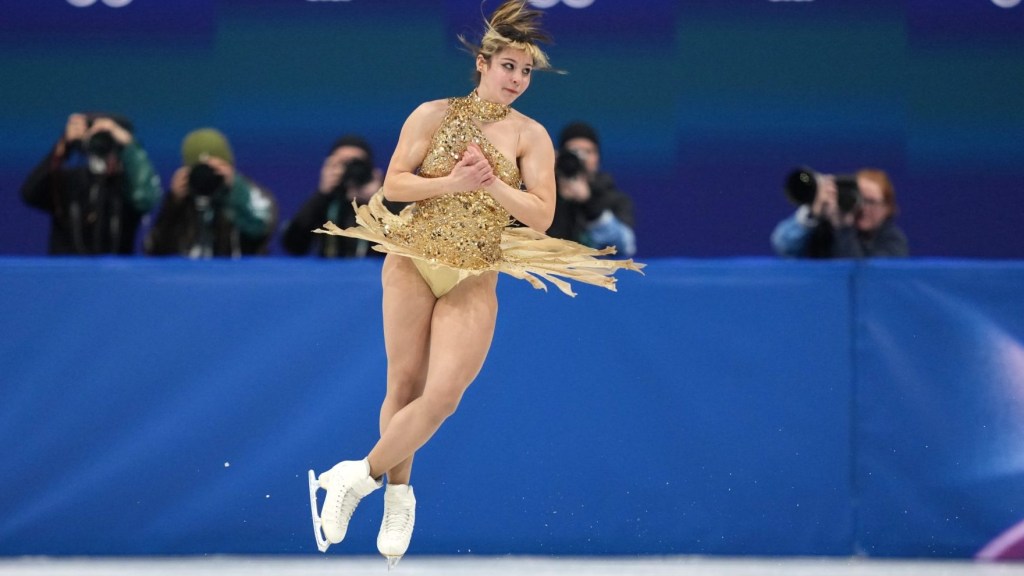On Monday, Sens. Maria Cantwell (D., Wash), Cory Booker (D., N.J.), and Richard Blumenthal (D., Conn.), announced a counter-bill to the Republican– and NCAA–backed SCORE Act awaiting a vote in the House of Representatives. It’s called the Student Athlete Fairness and Enforcement (SAFE) Act.
The bill is the latest move in a flurry of activity throughout the past several weeks on Capitol Hill as Republicans in the House tried to get enough votes to pass the SCORE Act—with NCAA and conference lobbyists mounting their own blitz. Meanwhile, Democrats and even some Republicans have voiced public dismay for the bill.
“This legislation is a path through the new world of NIL,” said Sen. Cantwell, the ranking member of the Senate Commerce Committee, which has jurisdiction over college sports issues. “This bill will protect athlete rights, preserve women’s and Olympic sports, and help smaller schools compete. It is a fair shake for everyone, instead of the biggest, richest schools.”
Senators’ offices did not release a draft of the full bill, but provided a detailed press release saying the bill would codify NIL (name, image, and likeness) rights as well as some of the terms of the House v. NCAA settlement, strengthen regulations on agents, and give athletes two opportunities to transfer (with some provisions).
The SAFE Act would also amend the Sports Broadcasting Act of 1961 to allow the NCAA to pool all media rights in the hopes that the extra revenue would be able to fund women’s and Olympic sports. A new NCAA committee would be tasked with overseeing media-rights dollars distribution with the aim of maximizing funding for women’s sports and Olympic sports. When schools receive that money, they’d be required to use the money to maintain their Olympic and women’s sports scholarship offerings and roster sports.
The SAFE Act notably omitted two main provisions on the NCAA and power conference wishlist. It did not extend antitrust protections to the NCAA to fight off a flood of lawsuits about athlete compensation, eligibility, and other issues. It also did not say anything about the potential employee status of athletes (the NCAA wants a bill that would codify amateur status). There were other differences too, like leaving the rev-share cap alone rather than allowing it to be expanded beyond 22%.
Tim Buckley, NCAA SVP for external affairs, did not explicitly endorse the bill in a statement to Front Office Sports. However, he did praise Congress’ continued action on college sports legislative proposals.
“Those closest to college sports—including student-athletes and leaders of America’s colleges and universities at all levels—have consistently called on Congress to take action to address the actual threats facing collegiate athletics,” he said. “This includes protecting student-athletes from being forced to become employees, and ensuring academic standards and other commonsense rules can be applied consistently. There has never been more momentum in Congress to address these challenges and the NCAA will continue to work with all lawmakers to maximize opportunities for America’s 500,000-plus student-athletes.”
Representatives for the power conferences did not immediately respond to a request for comment reacting to the bill.
It is unclear whether the SAFE Act would have Republican support in the Senate. One congressional aide told FOS they were highly skeptical that Sen. Cruz (R., Texas), the chair of the Senate Commerce Committee, would sign onto the bill, given that it lacks the antitrust protections for the NCAA and a ban on athlete employee status. Cruz has been involved in negotiations with several senators, including Booker and Blumenthal, to reach a consensus legislation—which has so far not yielded any concrete drafts.
However, another source familiar with the talks said that it was likely Senate Republicans would sign onto the bill.
SCORE ACT Isn’t Dead Yet
House Republican leadership—along with NCAA and conference lobbyists—are still continuing their push to gather enough votes for the SCORE Act.
At one point, the SCORE Act appeared to have a decent chance of passing the House. It had bipartisan co-sponsors and included all the provisions on the NCAA’s wishlist, including antitrust exemptions and an employee status prohibition. It was supposed to be brought to the floor of the House for a vote last month.
However, House Republican leadership delayed the vote when it became clear that there weren’t enough lawmakers willing to sign on.
Some Texas Republicans had signaled they would vote no at the behest of Texas Tech billionaire booster Cody Campbell, who has launched a lobbying effort called Saving College Sports. Campbell hoped to introduce the Sports Broadcasting Act provision into legislation, as well as to create a new entity to replace the NCAA. (The former idea made it into the SAFE Act, however. Campbell told FOS Monday night: “I’m encouraged that people are starting to stand up to the greed of the conference commissioners and the complete disregard that they’ve had for the Student Athletes in this legislative process.”)
Meanwhile, not enough Democrats had agreed to vote for the SCORE Act, despite a few Democrat co-sponsors. The NCAA and conferences had decided to target the Congressional Black Caucus, but a congressional aide told FOS last week that there was not enough consensus for the entire caucus to back the bill.
Even if the SCORE Act did pass the House, however, it’s unclear whether it would clear 60 votes in the Senate.





![[Subscription Customers Only] Jul 13, 2025; East Rutherford, New Jersey, USA; Chelsea FC midfielder Cole Palmer (10) celebrates winning the final of the 2025 FIFA Club World Cup at MetLife Stadium](https://frontofficesports.com/wp-content/uploads/2026/02/USATSI_26636703-scaled-e1770932227605.jpg?quality=100&w=1024)











